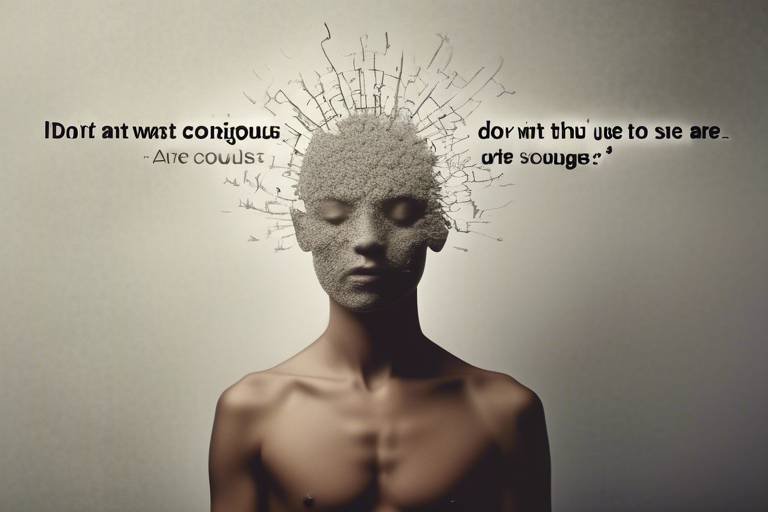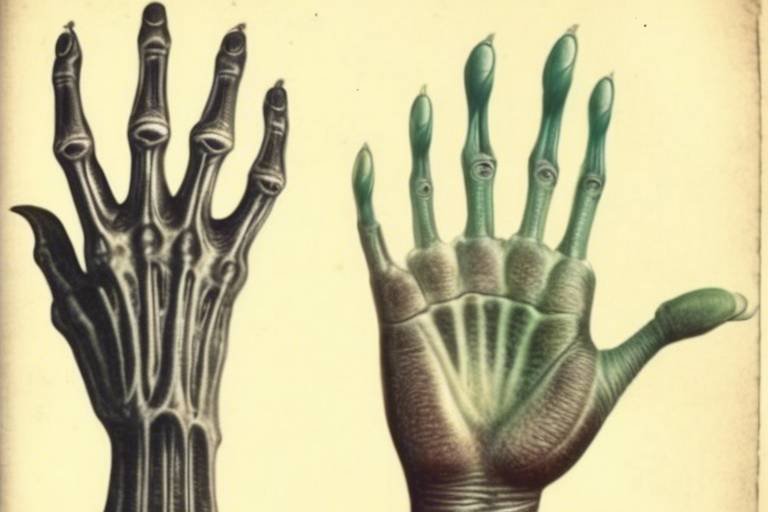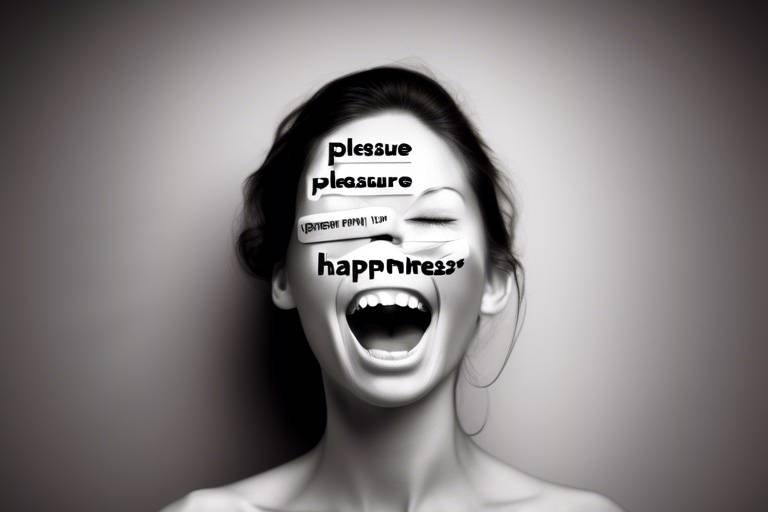Are Conscious Thoughts All We Are Aware Of?
Have you ever paused to ponder the depths of your own mind? It's a fascinating journey, isn't it? The question of whether our conscious thoughts represent the entirety of our awareness is a profound one. Many of us glide through life, believing that the thoughts we actively engage with are all there is to our consciousness. But what if I told you that there's a vast ocean of awareness beneath the surface of our conscious thoughts? This article aims to dive deep into the nature of consciousness, exploring the layers that exist beyond our immediate awareness.
When we think about consciousness, we often picture it as a light shining brightly on our thoughts and perceptions. However, just like an iceberg, the bulk of our mental activity lies hidden beneath the surface. The conscious mind is just the tip, while the subconscious and unconscious layers hold a treasure trove of memories, instincts, and feelings that influence our daily lives. Are you ready to explore these hidden depths? Let’s embark on this enlightening journey together!
Understanding consciousness isn't merely an academic exercise; it's a path to greater self-awareness. By recognizing the interplay between our conscious thoughts and the deeper layers of awareness, we can unlock new dimensions of personal growth and understanding. Imagine your mind as a multi-layered cake—each layer represents a different aspect of your awareness. The frosting, which is your conscious thought, may look appealing, but the richness of the cake lies in the layers below. In the following sections, we will dissect these layers, revealing how they shape our experiences and influence our decisions.
So, what exactly are these layers of awareness? Are they merely theoretical constructs, or do they have real implications for how we navigate the world? Throughout this article, we will examine the nature of consciousness, the various levels of awareness, and the philosophical debates surrounding these concepts. By the end, you may find yourself questioning not just what you think, but how you think—and what that means for your understanding of reality itself.

The Nature of Consciousness
Understanding consciousness is like trying to catch smoke with your bare hands; it’s elusive, complex, and often defies easy explanation. At its core, consciousness is our awareness of ourselves and our environment. But what does that really mean? Is it just the thoughts we can articulate, or is there something deeper at play? Throughout history, thinkers from various disciplines have attempted to define consciousness, leading to a myriad of interpretations. Some argue that consciousness is merely a byproduct of brain activity, while others believe it transcends the physical realm.
To break it down, consciousness can be characterized by several key features:
- Subjectivity: Our experiences are uniquely ours, colored by personal perceptions and interpretations.
- Intentionality: Consciousness is often directed towards something—thoughts about our future, memories of our past, or sensory experiences in the present.
- Unity: Despite the multitude of thoughts and feelings we experience, consciousness feels like a single stream, a continuous flow of awareness.
Philosophers and scientists have proposed various theories to explain consciousness. The biological perspective suggests that consciousness arises from complex neural networks in our brains. Meanwhile, philosophical theories like dualism argue that consciousness exists separately from the physical brain, suggesting a deeper, perhaps spiritual, essence to our awareness. This debate raises intriguing questions: Are we merely biological machines, or is there something more profound shaping our consciousness?
As we explore these theories, we also encounter the concept of self-awareness. This is the ability to reflect on one’s own thoughts and feelings, a hallmark of human consciousness. Think about it—when you ponder why you feel a certain way or why you made a specific choice, you’re engaging in a form of self-awareness. This reflective practice is crucial for personal growth and understanding, allowing us to navigate the complexities of life with greater insight.
In summary, the nature of consciousness is a rich tapestry woven from subjective experiences, biological processes, and philosophical inquiries. It invites us to explore not just who we are, but also how we relate to the world around us. As we delve deeper into the layers of awareness, we may uncover truths that challenge our understanding of existence itself.

Levels of Awareness
When we delve into the , we uncover a fascinating landscape of the human mind that goes far beyond just what we consciously think about. Imagine your mind as a vast ocean; the surface is where your conscious thoughts float, while the deeper layers hold currents that influence your every move. This section will explore three primary levels of awareness: conscious, subconscious, and unconscious. Each layer plays a pivotal role in shaping our thoughts, emotions, and actions, often in ways we might not even realize.
The conscious mind is akin to the spotlight in a dark theater, illuminating only a small portion of the stage. It encompasses the thoughts and perceptions we actively engage with, allowing us to make decisions, reflect on our experiences, and interact with the world around us. This level of awareness is essential for problem-solving and critical thinking. For instance, when you’re faced with a choice—like deciding what to eat for dinner—your conscious mind evaluates the options based on your preferences, dietary restrictions, and even your mood at that moment.
However, lurking just below the surface is the subconscious mind, a reservoir of feelings, thoughts, and memories that influence us profoundly, often without our conscious awareness. It’s like the hidden currents of the ocean, subtly guiding the surface waves. The subconscious is responsible for automatic behaviors and emotional responses, often shaped by past experiences. For example, if you’ve had a negative experience with a dog in your childhood, your subconscious might trigger a feeling of unease whenever you encounter a dog again, even if you’re not actively thinking about that past incident.
Then, we have the unconscious mind, which operates even deeper than the subconscious. This level governs many of our automatic functions and instincts, such as breathing, heartbeat regulation, and even reflexes. It’s like the deep-sea creatures that thrive in the dark, rarely seen but essential for the ecosystem. The unconscious mind also harbors repressed memories and desires that can influence our behavior in surprising ways. For instance, someone might feel inexplicably anxious in certain situations due to unresolved issues buried deep within their unconscious.
Understanding these levels of awareness can significantly enhance our self-awareness and emotional intelligence. By recognizing how our subconscious and unconscious minds influence our conscious thoughts and behaviors, we can start to unravel the complexities of our motivations. This awareness can lead to personal growth, improved relationships, and a better understanding of our emotional responses.
In summary, the interplay between the conscious, subconscious, and unconscious levels of awareness creates a rich tapestry of human experience. By exploring these layers, we can gain insights into our behaviors and thoughts, ultimately leading to a more profound understanding of ourselves. So, the next time you find yourself reacting to a situation, take a moment to reflect: Is this response purely conscious, or is there a deeper current at play?
- What are the main levels of awareness? The three main levels are conscious, subconscious, and unconscious awareness.
- How does the subconscious influence behavior? The subconscious shapes our feelings and actions based on past experiences, often without our conscious realization.
- Can we access our unconscious mind? While direct access is challenging, techniques like therapy and mindfulness can help bring unconscious influences to the surface.

Conscious Awareness
Conscious awareness is the spotlight of our mental stage; it’s where the action happens, where we actively engage with our thoughts, feelings, and perceptions. Imagine your mind as a theater, with conscious awareness as the main actor performing in front of an audience of your senses. This is the part of our consciousness that we can control, the thoughts we can articulate, and the decisions we can make. When you ponder a tough choice or reflect on a memory, that’s your conscious awareness at work, guiding you through the maze of your experiences.
But what exactly does it mean to be consciously aware? It’s more than just being awake; it’s about actively processing information. For instance, when you’re driving a car, your conscious awareness is focused on the road, the traffic signals, and the actions of other drivers. You’re not just passively absorbing information; you’re making decisions, assessing risks, and responding to your environment. This active engagement is crucial because it shapes our reality and informs our choices.
Moreover, conscious awareness plays a significant role in self-reflection. Think of it as a mirror that allows you to examine your thoughts and feelings. Through self-reflection, we can understand our motivations, recognize our biases, and even challenge our beliefs. It’s like having a personal coach in your head, urging you to dig deeper and question your assumptions. This process is vital for personal growth and development, as it helps us become more aware of who we are and what drives us.
However, conscious awareness is just the tip of the iceberg. Beneath it lies the subconscious, a vast reservoir of thoughts and feelings that influence our behavior without us even realizing it. It’s crucial to understand that while conscious awareness is powerful, it doesn’t operate in isolation. The interplay between conscious and subconscious processes can be fascinating and complex. For example, have you ever found yourself reacting to a situation in a way that surprises you? That might be your subconscious mind pulling the strings, influenced by past experiences or emotions that you weren’t consciously aware of.
To illustrate the relationship between conscious awareness and its underlying layers, consider the following table:
| Level of Awareness | Description | Examples |
|---|---|---|
| Conscious Awareness | Active engagement with thoughts and perceptions | Decision-making, problem-solving, self-reflection |
| Subconscious | Influences feelings and actions without conscious awareness | Habits, automatic responses, emotional reactions |
| Unconscious | Automatic functions and instincts | Breathing, reflexes, underlying drives |
In summary, conscious awareness is a powerful tool that shapes our experiences and decisions. It allows us to navigate the complexities of life, but it’s essential to recognize its limitations and the influence of deeper layers of awareness. By understanding the dynamics of conscious awareness, we can better harness its potential for personal growth and self-discovery.

Subconscious Influences
The subconscious mind is like the hidden engine of a car, quietly working in the background while we focus on steering and accelerating. It influences our emotions, decisions, and behaviors in ways we often don’t even realize. Have you ever found yourself reacting to a situation with a strong emotion, yet you couldn’t pinpoint why? That’s your subconscious at play, pulling strings based on past experiences, beliefs, and even societal conditioning.
One fascinating aspect of the subconscious is its role in shaping our habits. Think about it: many of our daily actions, such as brushing our teeth or driving to work, are performed without conscious thought. These behaviors are ingrained in our subconscious, making them automatic. This can be both a blessing and a curse. On one hand, it frees up our conscious mind for more complex tasks; on the other, it can lead to negative habits that are hard to break.
For instance, consider the influence of subliminal messaging in advertising. Advertisers often use subtle cues that target our subconscious, prompting us to buy products without our explicit awareness. This raises an intriguing question: how much of our decision-making is genuinely our own? The subconscious can also harbor fears and anxieties that we might not consciously acknowledge. For example, a person might feel an unexplained sense of dread before a public speaking event, rooted in a past experience of embarrassment that they may not even remember. This hidden layer of memory can significantly affect how we navigate the world.
Additionally, our subconscious mind is a treasure trove of creativity. Have you ever had a brilliant idea pop into your head seemingly out of nowhere? That’s often the result of your subconscious mind synthesizing information and experiences while you’re busy focusing on something else. The subconscious can connect dots that our conscious mind may overlook, leading to those "aha!" moments that feel almost magical.
In summary, the subconscious mind is a powerful, often underestimated component of our awareness. It shapes our habits, influences our emotions, and sparks creativity, all while operating beneath the surface of our conscious thoughts. Understanding this hidden influence can empower us to take control of our lives, allowing us to recognize and challenge the patterns that no longer serve us. By acknowledging the role of the subconscious, we can begin to harness its power for positive change.
- What is the subconscious mind? The subconscious mind is the part of our mind that operates below the level of conscious awareness, influencing our thoughts, feelings, and behaviors.
- How does the subconscious influence my behavior? The subconscious shapes our habits, emotional responses, and decision-making processes based on past experiences and learned behaviors.
- Can I change my subconscious patterns? Yes, through practices like mindfulness, cognitive behavioral techniques, and positive affirmations, you can reprogram your subconscious mind.
- What role does the subconscious play in creativity? The subconscious mind can foster creativity by connecting ideas and experiences in ways that our conscious mind may not recognize.
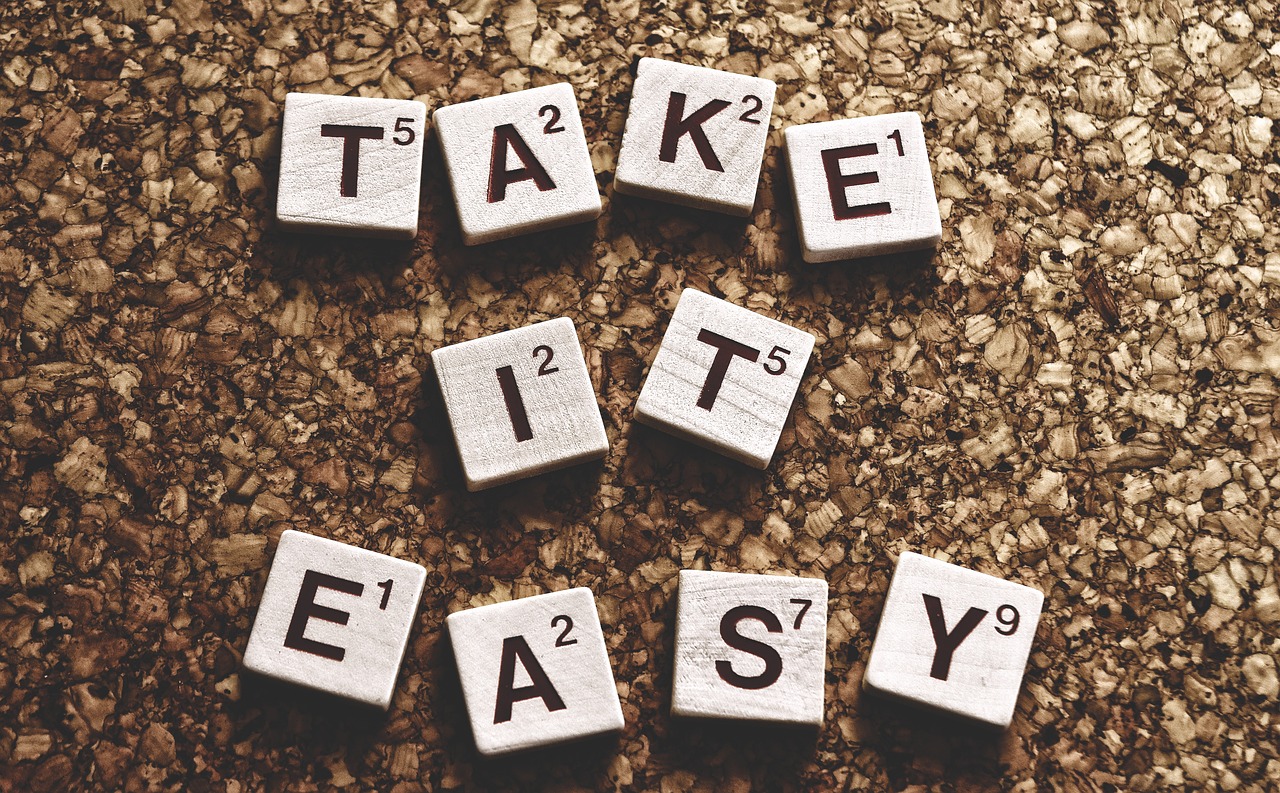
Unconscious Processes
When we think about our minds, we often focus on what we are actively aware of—those thoughts and feelings that float to the surface like bubbles in a fizzy drink. However, there’s a whole ocean of activity happening beneath that surface, in the realm of the unconscious mind. This part of our psyche is like the backstage crew of a theater production; it's not visible to the audience, yet it plays a crucial role in making everything happen smoothly. Unconscious processes govern many of our automatic functions, instincts, and reactions, often without us even realizing it.
For instance, consider how you ride a bike. Once you learn, you don’t have to consciously think about each pedal stroke or balance adjustment. Your unconscious mind takes over, allowing you to focus on the scenery or chat with a friend. This is a prime example of how unconscious processes operate seamlessly in our daily lives, enabling us to perform complex tasks without needing to deliberate on each step.
Moreover, unconscious processes influence our emotions and behaviors in ways that can be surprising. Think about the last time you felt an inexplicable sense of unease in a situation that seemed fine on the surface. Chances are, your unconscious mind picked up on subtle cues—like body language or tone of voice—that your conscious mind overlooked. These processes can lead to gut feelings or intuitions that guide our decisions, often steering us in directions we can't quite articulate.
To better understand the role of unconscious processes, let's break down some key functions:
- Automatic Responses: These include reflex actions, like pulling your hand away from a hot surface, which occur without conscious thought.
- Emotional Reactions: Our unconscious mind can trigger feelings based on past experiences, even if we don't consciously remember those events.
- Implicit Memory: This refers to memories that influence our behavior without us being aware of them, such as skills we've learned over time.
In essence, the unconscious mind is a powerful force that shapes our lives in profound ways. It’s like the hidden engine of a car; while we may focus on the steering wheel and pedals, it’s the engine that propels us forward. Understanding and acknowledging these unconscious processes can lead to greater self-awareness and help us navigate our emotional landscape more effectively.
- What are unconscious processes? Unconscious processes are mental functions that occur without our conscious awareness, influencing our thoughts, behaviors, and emotions.
- How do unconscious processes affect our daily lives? They guide automatic responses, shape emotional reactions, and influence decision-making, often without us realizing it.
- Can we access our unconscious mind? While we cannot directly access unconscious processes, techniques like mindfulness and therapy can help bring some of these influences into conscious awareness.

Mindfulness and Awareness
In our fast-paced world, where distractions lurk around every corner, mindfulness emerges as a beacon of clarity and calm. But what exactly is mindfulness? At its core, mindfulness is the practice of being fully present in the moment, engaging with our thoughts, feelings, and surroundings without judgment. Imagine standing at the edge of a serene lake, watching the water ripple gently as the sun sets. That peaceful moment is what mindfulness aims to cultivate within our busy lives.
Mindfulness enhances our conscious awareness by allowing us to observe our internal experiences—thoughts, emotions, and sensations—without getting swept away by them. It’s like watching clouds float by in the sky; we acknowledge their presence but don’t let them dictate our mood or actions. This practice not only promotes a greater understanding of ourselves but also fosters emotional resilience, enabling us to respond to challenges with a clearer mind.
So, how can we incorporate mindfulness into our daily routine? Here are a few techniques that can help:
- Breathing Exercises: Focus on your breath. Inhale deeply, hold for a moment, and exhale slowly. This simple act can ground you and bring your awareness back to the present.
- Body Scan: Lie down comfortably and mentally scan your body from head to toe. Notice any tension or discomfort, and consciously relax those areas.
- Mindful Walking: Take a walk outside, paying attention to each step you take. Feel the ground beneath your feet and notice the sounds around you.
Incorporating these practices into your life can yield profound benefits. Research shows that mindfulness not only reduces stress but can also improve focus and enhance emotional regulation. It’s like training a muscle; the more we practice, the stronger our ability to remain present becomes.
Moreover, mindfulness opens the door to a deeper understanding of our subconscious influences. When we become aware of our thoughts, we can begin to identify patterns that may have gone unnoticed. This awareness can lead to transformative changes in how we respond to situations, making us more intentional in our choices and interactions.
In essence, mindfulness is a powerful tool for enhancing our awareness. By dedicating just a few moments each day to practice, we can cultivate a greater sense of peace and clarity in our lives. So, why not take a moment right now? Close your eyes, breathe deeply, and just be. You might be surprised at what you discover.
What is mindfulness?
Mindfulness is the practice of being fully present and engaged in the moment, observing thoughts and feelings without judgment.
How can I practice mindfulness?
You can practice mindfulness through techniques such as breathing exercises, body scans, and mindful walking.
What are the benefits of mindfulness?
Mindfulness can reduce stress, improve focus, and enhance emotional regulation, leading to a greater sense of well-being.
Do I need to meditate to be mindful?
While meditation is a common mindfulness practice, mindfulness can also be integrated into everyday activities like eating, walking, or even washing dishes.
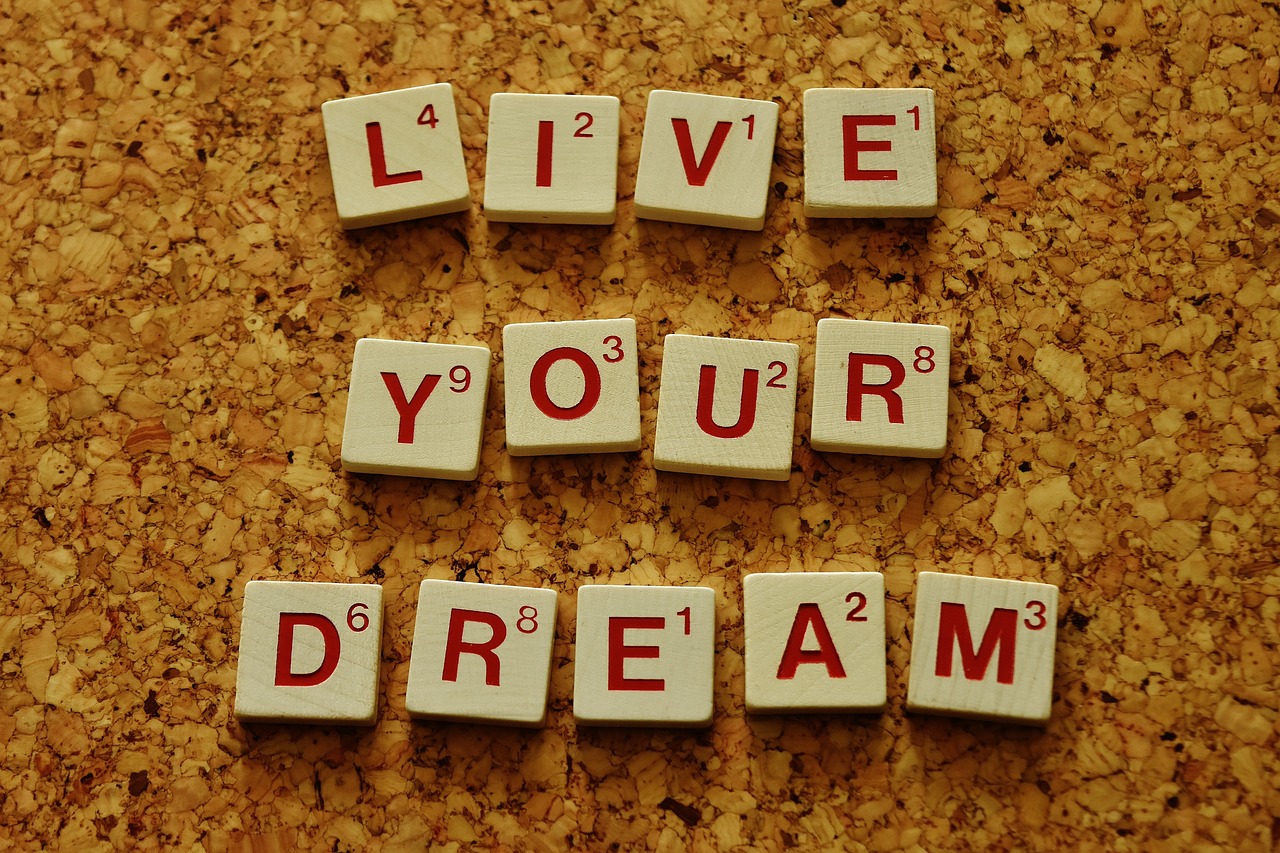
Philosophical Perspectives
The exploration of consciousness is not merely a scientific endeavor; it is deeply intertwined with philosophical inquiry. Philosophers have long grappled with questions about the nature of consciousness, its implications for our understanding of the self, and how it shapes our reality. At the heart of this discussion are fundamental questions: What does it mean to be aware? Is consciousness an emergent property of the brain, or is it something more profound? These questions have led to a rich tapestry of philosophical perspectives, each offering unique insights into the complexities of consciousness.
One of the central debates in philosophy regarding consciousness is the dichotomy between dualism and physicalism. Dualism posits that consciousness exists independently of the physical brain, suggesting that there is a non-material aspect to our awareness. This perspective raises intriguing questions about the nature of the self and the afterlife. On the other hand, physicalism argues that consciousness is entirely a product of physical processes within the brain. This view aligns with many scientific findings, suggesting that our thoughts, feelings, and experiences are ultimately reducible to neural activity.
To illustrate these perspectives, consider the following table that summarizes the key differences between dualism and physicalism:
| Aspect | Dualism | Physicalism |
|---|---|---|
| Nature of Consciousness | Separate from the physical brain | Emerges from brain activity |
| Implications for Self | Non-material self exists | Self is a product of physical processes |
| Afterlife | Possibility of existence beyond death | Consciousness ceases with brain activity |
Another important philosophical consideration is the existential perspective, which raises questions about the meaning and purpose of consciousness in our lives. Existential philosophers like Jean-Paul Sartre and Martin Heidegger have argued that our awareness is not just a passive experience but an active engagement with the world. They contend that our consciousness allows us to reflect on our existence, make choices, and define our essence. This perspective emphasizes the responsibility that comes with awareness; we are not merely products of our environment but active participants in shaping our lives.
Moreover, the existential viewpoint invites us to ponder the significance of our conscious experiences. Are we merely a collection of thoughts and sensations, or is there a deeper essence that connects us to the universe? This question leads us to consider the role of subjectivity in our understanding of consciousness. Each individual's awareness is shaped by personal experiences, cultural backgrounds, and social contexts, making consciousness a profoundly subjective phenomenon. This subjectivity can often lead to a sense of isolation, as each person's experience of reality is unique, yet it also fosters empathy and connection as we share our narratives with one another.
As we navigate through these philosophical perspectives, it becomes evident that the nature of consciousness is a multifaceted issue that transcends simple definitions. The interplay between dualism and physicalism, along with existential considerations, invites us to reflect on who we are and how we understand our place in the world. Ultimately, consciousness is not just a topic for philosophical debate; it is a fundamental aspect of the human experience that shapes our reality and influences our interactions with others.
- What is the difference between consciousness and awareness?
Consciousness refers to the state of being aware of and able to think about one's own existence, thoughts, and surroundings. Awareness, on the other hand, is a broader term that encompasses all levels of perception, including unconscious and subconscious processes. - Can consciousness exist independently of the brain?
This is a central question in the dualism versus physicalism debate. Dualists argue that consciousness can exist apart from the physical brain, while physicalists maintain that it is a product of brain activity. - How does mindfulness relate to consciousness?
Mindfulness practices enhance our conscious awareness by helping us observe our thoughts and feelings without judgment, leading to greater self-understanding and emotional regulation.

Dualism vs. Physicalism
When we dive into the debate between dualism and physicalism, we are essentially exploring two contrasting views about the nature of consciousness and its relationship to the physical body. Dualism posits that the mind and body are fundamentally different substances. This means that our thoughts, feelings, and consciousness exist independently of the physical brain. Think of it like a computer and its software: the hardware (the brain) runs the software (the mind), but they are not the same entity. Renowned philosopher René Descartes famously argued for dualism, suggesting that the mind is a non-physical substance that interacts with the body but is not bound by its limitations.
On the flip side, physicalism argues that everything about the mind can be explained in terms of physical processes. According to this view, consciousness arises from the complex interactions of neurons and biochemical processes in the brain. In other words, all our thoughts and feelings are products of physical states. Imagine a light bulb: it only shines when electricity flows through it. Similarly, physicalists believe that consciousness only exists when certain physical conditions are met in the brain.
To better understand these perspectives, let’s break down some key points:
| Aspect | Dualism | Physicalism |
|---|---|---|
| Definition | Mental and physical are distinct substances. | Mind is a product of physical processes. |
| Key Proponent | René Descartes | Daniel Dennett |
| View on Consciousness | Independent of the brain. | Dependent on brain activity. |
| Implications | Possibility of life after death. | Consciousness ceases with brain death. |
Both perspectives offer intriguing insights, but they also raise profound questions. For instance, if dualism is correct, what does that imply about our understanding of life after death? Alternatively, if physicalism holds true, how do we account for the rich, qualitative experiences of consciousness that seem to transcend mere physical processes? The implications of these debates extend beyond philosophy and into fields like neuroscience, psychology, and even artificial intelligence.
Ultimately, the debate between dualism and physicalism is not merely academic; it shapes our understanding of what it means to be human. Are we simply biological machines, or is there something more to our existence? As we continue to explore these questions, one thing remains clear: the nature of consciousness is a complex and multifaceted phenomenon that challenges our perceptions of reality.
- What is dualism? Dualism is the philosophical view that the mind and body are distinct and separate substances.
- What is physicalism? Physicalism is the belief that everything, including consciousness, can be explained by physical processes in the brain.
- Who is a key proponent of dualism? René Descartes is a prominent figure associated with dualism.
- What are the implications of dualism? Dualism suggests the possibility of life after death and the existence of non-physical substances.
- How does physicalism view consciousness? Physicalism sees consciousness as a result of brain activity and ceases to exist when the brain does.
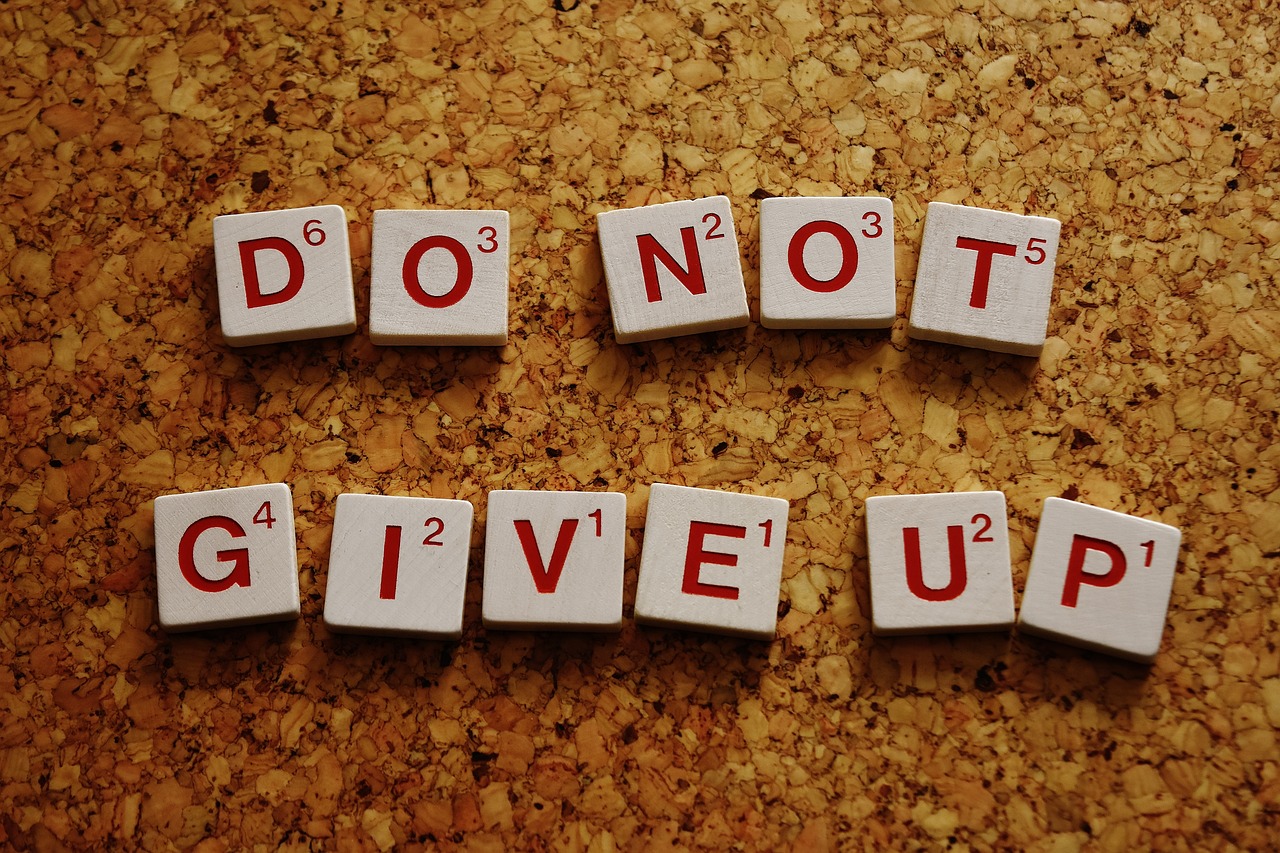
Existential Considerations
When we dive into the depths of consciousness, we can't help but stumble upon existential questions that have puzzled humanity for centuries. What does it mean to be aware? Why do we exist? These questions are not just philosophical musings; they are the very essence of our human experience. To understand consciousness, we must also explore the implications it has on our existence and purpose. After all, if awareness is the lens through which we view our lives, what does that say about our understanding of ourselves and the world around us?
Existential philosophy posits that our awareness shapes our understanding of existence. Imagine consciousness as a vast ocean, with each wave representing a thought or feeling. As we navigate through this ocean, we encounter different depths of awareness, each revealing new insights about who we are. The more we explore, the more we realize that our conscious thoughts are just the tip of the iceberg, with deeper layers of understanding waiting to be uncovered below the surface.
One of the most significant existential considerations is the concept of authenticity. In a world filled with distractions and societal expectations, how do we stay true to ourselves? Our conscious awareness can often be clouded by external influences, leading us to make choices that don't align with our true selves. By cultivating a deeper awareness, we can begin to peel back the layers of conditioning and discover what truly matters to us. This journey toward authenticity is not just about self-discovery; it’s about embracing our unique purpose in life.
Furthermore, the relationship between consciousness and meaning is a crucial aspect of existential thought. Many philosophers argue that our awareness of our own existence compels us to seek meaning in our lives. This quest for meaning can manifest in various ways, such as through relationships, creative expression, or spiritual exploration. The challenge lies in recognizing that meaning is not something to be found externally; rather, it is something we create through our conscious choices and experiences.
To illustrate this further, consider the following table that outlines different existential questions and their implications for consciousness:
| Existential Question | Implication for Consciousness |
|---|---|
| What is my purpose? | Encourages exploration of personal values and passions. |
| What happens after death? | Shapes beliefs and influences how we live our lives today. |
| Is there a greater truth? | Prompts inquiry into philosophical and spiritual beliefs. |
| How do I connect with others? | Highlights the importance of relationships and community. |
In conclusion, existential considerations are vital for understanding the full scope of consciousness. They challenge us to reflect on our lives and the choices we make. By engaging with these questions, we not only gain insight into our own existence but also foster a deeper connection with others. Ultimately, the journey of self-awareness is not a solitary path; it’s a shared experience that can lead to profound transformations in both our lives and the lives of those around us.
- What is consciousness? Consciousness refers to the state of being aware of and able to think about one's own existence, thoughts, and surroundings.
- How does awareness affect decision-making? Awareness allows individuals to reflect on their thoughts and feelings, which can lead to more informed and intentional decisions.
- Can mindfulness practices enhance consciousness? Yes, mindfulness practices help individuals observe their thoughts and feelings without judgment, promoting greater self-awareness.
- What role does the subconscious play in our lives? The subconscious influences our behaviors and feelings in ways we're often unaware of, shaping our reactions and experiences.
Frequently Asked Questions
- What is consciousness?
Consciousness is often defined as the state of being aware of and able to think about one's own existence, thoughts, and surroundings. It's like the spotlight in a dark room, illuminating only what we are currently focused on while other elements remain in the shadows.
- Are conscious thoughts all we are aware of?
No, our awareness extends beyond just conscious thoughts. We also have subconscious and unconscious processes that influence our feelings, behaviors, and decisions without our active awareness. It's similar to an iceberg, where only a small part is visible above water, while the majority lies hidden beneath the surface.
- How does the subconscious mind affect our behavior?
The subconscious mind plays a crucial role in shaping our behaviors and emotions. It stores memories, beliefs, and experiences that can influence our reactions and choices, often without us realizing it. Think of it as a background program running on your computer, affecting how you operate without you needing to interact with it directly.
- What are some techniques to enhance mindfulness?
Mindfulness can be cultivated through various techniques such as meditation, deep breathing exercises, and body scanning. These practices help us become more aware of our thoughts and feelings in the present moment, allowing us to observe them without judgment. It's like training a muscle; the more you practice, the stronger your mindfulness becomes.
- What is the difference between dualism and physicalism?
Dualism posits that consciousness exists independently of the physical brain, while physicalism argues that consciousness is a product of brain activity. This debate raises profound questions about the nature of our existence and self-awareness, much like two sides of a coin that cannot be separated yet are distinct in their properties.
- How does existential philosophy relate to consciousness?
Existential philosophy examines the meaning and purpose of consciousness in our lives. It encourages us to reflect on our existence and the choices we make, emphasizing that our awareness shapes our understanding of life and our place within it. It's akin to being an artist, where your consciousness is the canvas upon which you paint your experiences and beliefs.

